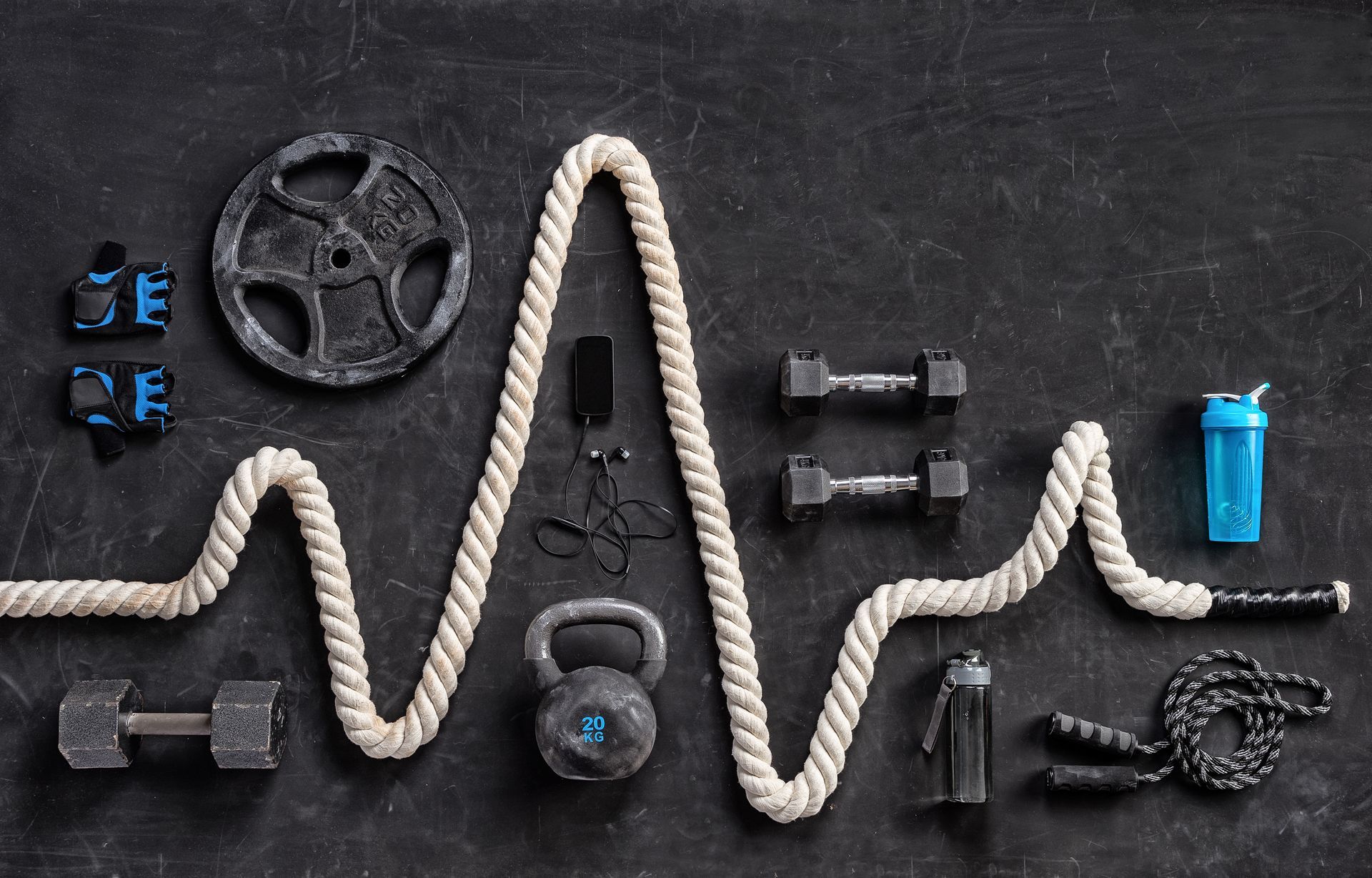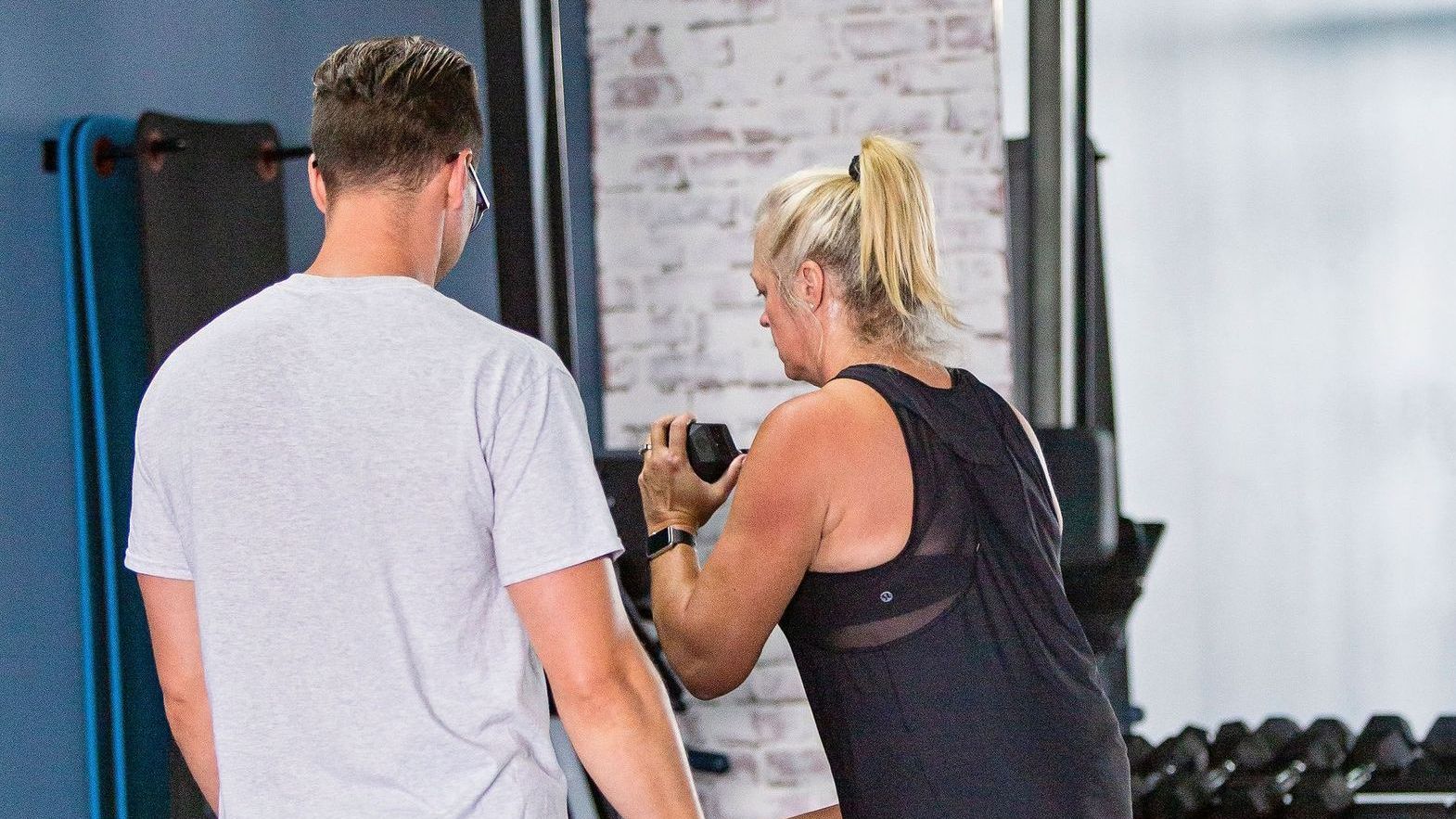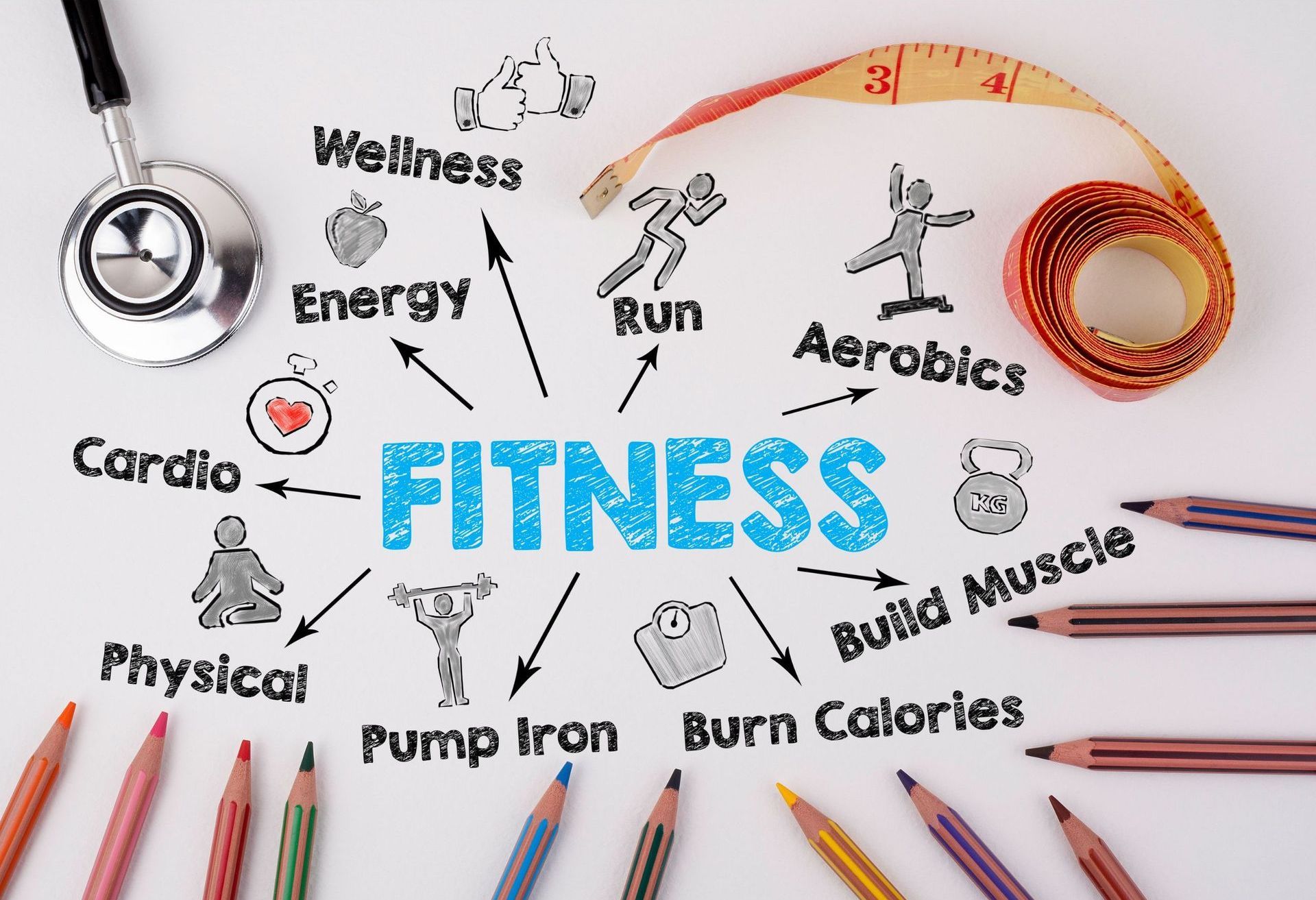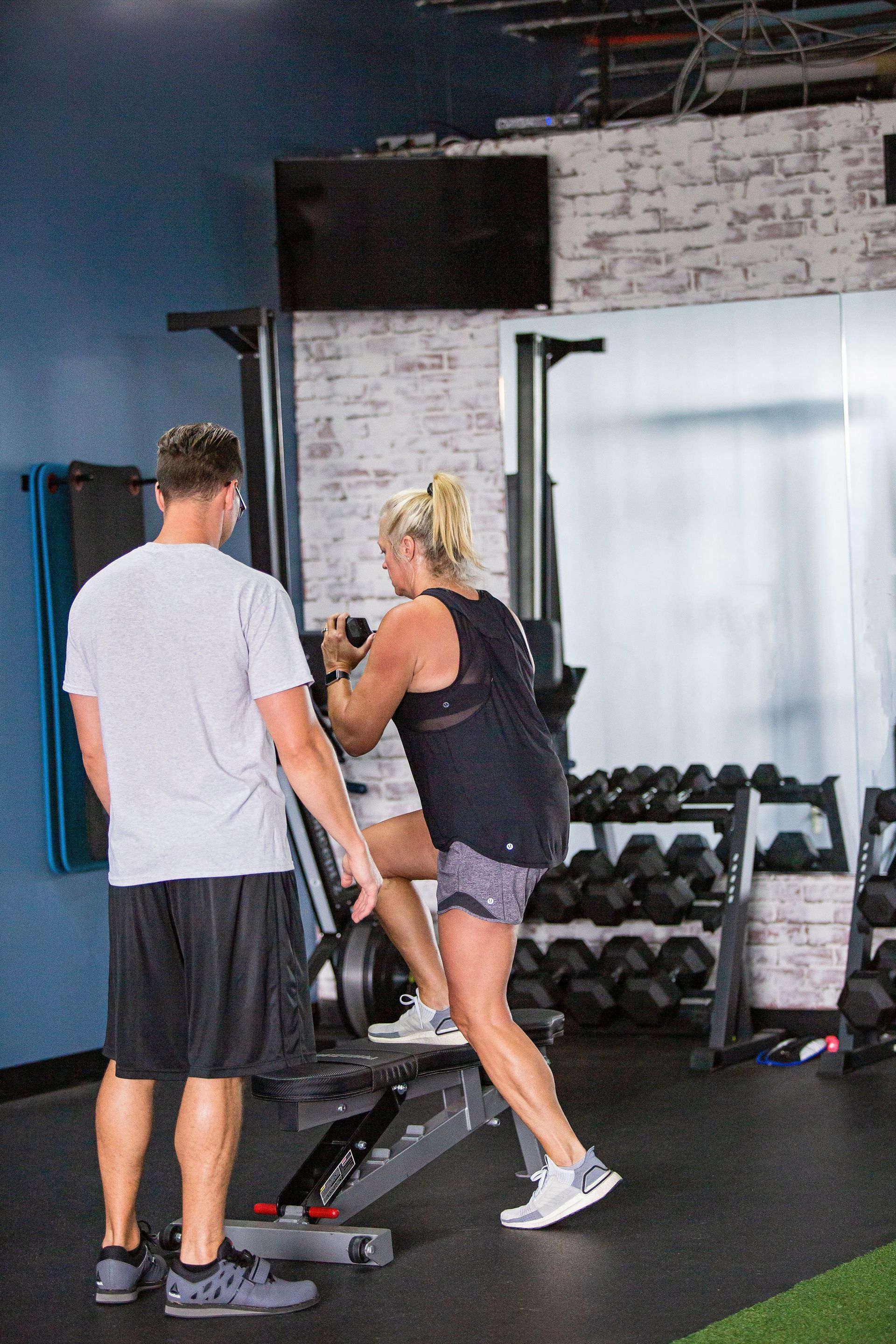Why Functional Training Beats a Roomful of Gym Equipment

In recent years, the fitness industry has been inundated with a cornucopia of machines, weights, and gadgets that promise to sculpt your physique into a paragon of health. Are you tired of trying to decipher which piece of equipment will give you the workout you're searching for? Enter functional training, a game-changing approach to fitness that has even the most seasoned Personal Trainers singing its praises. Unlike traditional gym equipment that often targets isolated muscles, functional training is designed to mimic and optimize the movements you use in everyday life. It's not just about looking good; it's about enhancing your quality of living, from lifting your kids to sprinting for that bus. Whether you're a fitness novice or a dedicated gym rat, this article will elucidate why choosing functional training over a sea of gym equipment might be the most sagacious decision you'll make for your overall well-being. Stay tuned, and let's embark on a journey toward a fitter, more functional you.
What is Functional Training?
Functional training has its roots deeply embedded in rehabilitation and sports training. Unlike the plethora of gym equipment aimed at isolating specific muscle groups, this dynamic approach aims for holistic development. When a Personal Trainer advocates for functional training, they're not just looking at your biceps or your calves in isolation; they're considering how your body functions as an interlinked system. This method capitalizes on movements that are intrinsic to human function, like lifting, pulling, and pushing, to prepare you for tasks that you perform daily or to enhance your athletic prowess.
The underlying philosophy of functional training is rather pragmatic. Instead of compartmentalizing workouts to focus on one muscle group at a time, it encourages exercises that engage multiple muscle groups and joints. Imagine lifting a heavy box off the ground. You're not just using your arms; your legs, core, and back all get involved. Functional training mimics these natural movements, creating a workout regimen that's not only diverse but highly applicable to daily life. Whether you're an athlete looking to optimize performance or an everyday Joe or Jane aspiring for better health and function, functional training can be tailored to meet a wide range of objectives.
Its versatility, adaptability, and real-world application make functional training an invaluable approach that transcends the limitations often encountered in conventional gym settings.
Versatility and Adaptability
In a rapidly evolving fitness landscape, functional training has gained notoriety for its remarkable versatility and adaptability. Whether you're a professional athlete or a 9-to-5 worker battling a sedentary lifestyle, functional training caters to a broad spectrum of needs. It's this unique flexibility that Personal Trainers are quick to leverage when crafting custom fitness regimes for clients with diverse objectives and limitations.
Consider the versatility. Functional training integrates a wide array of movements—lunges, squats, pulls, and pushes—that can be scaled up or down in intensity and complexity. This makes it an ideal choice for individuals at any fitness level. You could be a neophyte taking baby steps into the realm of physical fitness or a seasoned athlete seeking to refine specific skills; functional training offers a gamut of options to keep you engaged and challenged.
On the adaptability front, functional training can seamlessly blend into your daily life. Its exercises often emulate everyday activities, making your training intrinsically practical. You're not just gaining muscle or losing weight; you're enhancing your ability to carry groceries, climb stairs, or play a sport. The training adapts to you, rather than you having to adapt to a monolithic regimen.
The versatility and adaptability of functional training make it an invaluable tool in any Personal Trainer’s arsenal, and its widespread applicability signifies its staying power in the fluctuating world of fitness trends.
Injury Prevention and Rehabilitation
Arguably, one of the most underappreciated merits of functional training is its role in injury prevention and rehabilitation. What sets functional training apart in the realm of injury prevention is its focus on mimicking daily activities and sport-specific tasks. Unlike conventional exercise regimens that often emphasize isolated movements and thereby encourage muscle imbalances, functional training looks at the body as a cohesive unit. It’s the holistic approach that many a Personal Trainer advocates for, and with good reason.
Utilizing functional training for injury prevention involves integrating compound movements that engage multiple muscle groups and joints concurrently. This fosters improved muscle balance and joint stability, crucial factors that can mitigate the risk of acute or overuse injuries. When muscles around a joint operate in harmony, the joint itself is less susceptible to wear and tear. It's a strategy that's not just prophylactic but also remedial.
Should you find yourself mired in the trenches of injury, functional training can serve as a potent rehabilitative tool. Given its origins in physical therapy, this method is adept at reconditioning the body and re-establishing lost function. A skilled Personal Trainer versed in functional paradigms can help design a recuperative regimen tailored to your specific needs. From tweaking simple body mechanics to retraining complex movement patterns, functional training provides a comprehensive framework for both injury prevention and rehabilitation.
Psychological Advantages
While the physical merits of functional training are copiously lauded, the psychological benefits are often relegated to the periphery of the conversation. Yet, they are just as vital. If you've ever felt trapped in a workout routine that feels more monotonous than a broken record, functional training offers a refreshing antidote. Its inherent diversity keeps not only your muscles but also your mind engaged. This is something that many a Personal Trainer will vouch for as they continuously innovate to keep their clients committed and stimulated.
Engaging in functional training requires a heightened level of focus and spatial awareness, cultivating mental resilience and adaptability. It can turn even the most mundane workout routine into a multidimensional experience that challenges not only your physical prowess but also your cognitive faculties. You're not just executing a series of repetitive movements; you're solving problems, adapting to challenges, and thinking on your feet—literally.
Moreover, functional training allows for a series of small victories. Completing a complex exercise or realizing that a day-to-day activity has become easier can boost self-esteem and create a sense of accomplishment. These psychological perks make functional training more than just a physical endeavor; it becomes an investment in your overall well-being. In a world awash with quick fixes and superficial gratification, functional training provides a deeply gratifying journey that benefits the mind as much as it does the body.
Deciding Between Functional Training and Exercise Machines
When it comes to achieving your fitness goals, the question often arises: should one opt for functional training or stick with traditional exercise machines? This is a conundrum that even seasoned Personal Trainers often deliberate on. Let's break down the comparative advantages and drawbacks to help you make an informed choice.
On one hand, traditional gym machines often isolate specific muscles, providing targeted strength gains. For those recovering from injury or new to the fitness sphere, machines can offer a controlled environment to build basic muscle strength. However, the confinement to a single plane of movement could lead to muscle imbalances and a lack of functional fitness. Simply put, the "real-world" applicability of such targeted exercises can be limited.
Conversely, functional training emphasizes movements over muscles. This means you’re working on a multitude of planes, engaging multiple muscle groups, and thereby achieving holistic strength and flexibility. The dynamism and adaptability of functional training programs make them appealing to individuals who seek a balanced, everyday sort of fitness rather than hypertrophic prowess.
So, how do you decide? If you're looking for specific muscle development or are in a rehabilitative phase, machines have their merit. However, for a well-rounded fitness regimen that you can apply beyond the gym walls, functional training holds the upper hand. Discussing your fitness goals with a certified Personal Trainer can provide you tailored insights into choosing the most efficacious path for you.
Functional Training for Weight Loss
The fitness world is inundated with myriad weight loss strategies, but functional training often remains an underutilized gem in this domain. Many individuals, guided by Personal Trainers, are embracing functional training as a robust avenue for shedding those stubborn pounds. And why not? Its multifaceted approach provides a potent amalgamation of cardio and strength training, optimizing calorie burn and metabolic rate.
A typical functional training regimen engages large muscle groups through complex movements, escalating your heart rate and consequently, your energy expenditure. Unlike traditional cardio exercises that may contribute to muscle loss along with fat loss, functional training aims for a balanced catabolism. You're shedding fat without compromising much-needed muscle mass. That's what you call killing two birds with one stone—or in this case, one kettlebell or medicine ball.
Moreover, functional training has a secret weapon—afterburn or the post-exercise oxygen consumption (EPOC). Simply put, you continue to burn calories even after you've wrapped up your workout. This occurs as your body works to restore itself to a resting state, requiring extra energy that is fueled by the calories you’ve ingested. It's a physiological phenomenon that ensures your weight loss efforts extend beyond the temporal confines of your exercise session.
So, if you're seeking an efficacious and balanced weight loss solution, functional training offers a compelling case. Consult a qualified Personal Trainer to tailor a regimen that aligns with your specific weight loss objectives for maximum efficacy.
At Hustle and Heart Fitness, we offer Personal Training Sessions, Gym Memberships and Infrared Sauna Sessions to help clients achieve the results they want. Give us a call at (913) 671-0318 or visit our website at www.hhfitkc.com to learn more.
For more than fifteen years, Ryan Isern has been helping clients achieve their fitness goals. Over five years ago he opened Hustle and Heart Fitness and has helped clients throughout Southern Johnson County and the surrounding area with their health and fitness needs. Want to give us a try? Click Here for a Free Workout or Free Infrared Sauna Session or fill out the form below, and we’ll answer any specific questions you may have.
We are not your typical gym. We are a boutique fitness studio that focuses on whole health centered around exercise, infrared sauna use, and nutritional therapy. We design workouts to fit anyone’s needs!
Hustle and Heart Fitness | (913) 671-0318 | Overland Park, Kansas
Hustle and Heart Fitness Studio | 8300 W 151st St | Overland Park, KS 66223
Contact Us
















